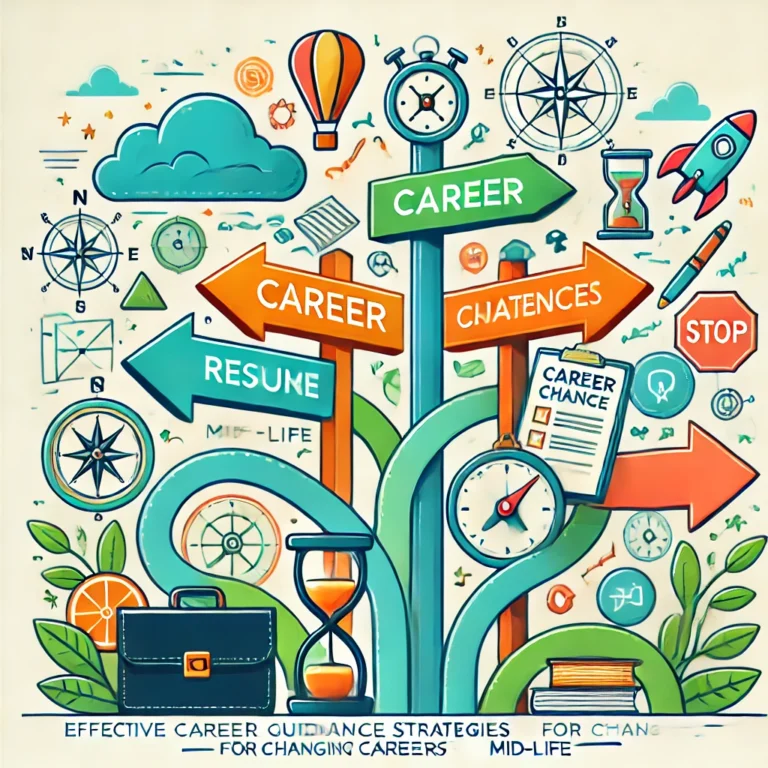Navigating the Legal Field: Career Tips for Working with Estate Lawyers Near Me
In the world of estate law, these are some great tips to help you getting started in your career! By reading on, you might be a fresh graduate or wish to specialize in estate law and this article will outline some career tips that can help grow your career within the niche of legal arena as well how effectively deal with all those estate lawyers near me.
The Purpose of an Estate Lawyer
Estate lawyers (or probate draftsman etc) specialise in issues relating to estate planning, wills and trusts and can help you with your query. They aid clients in managing their estate after death, to avoid any legal issues. For those wishing to work in this sector, it is important that you have an understanding of the nuances involved in working as a Business Developer.
Property Planning and Distribution of Assets
This is the process of estate planning:- Estate Planning comes in for legal documents like will and trusts which tells about how an individual gives his/her assets to other person or who get that asset after your death. Estate lawyers assist clients by drafting these documents to guarantee that their wishes will be carried out and also so as to provide for the security of family members.
Probate Process
Probate The probate process is the legal method by which an individual’s will is authenticated, and their property goes through this procedure. Estate lawyers also help executors manage this complicated process, which typically includes appearing before court as required, looking after the estate’s assets and taking care of debts in order to distribute property according to the will.
Trusts and Tax Planning
Estate lawyers also assist in the creation of trusts, which can help to manage and protect money both while a client is alive and for when they pass. To guide clients on tax planning strategies to lower estate taxes and gain the most for their beneficiaries.
Courses and Certifications
For estate lawyers, the path to entry most people take is earning a law degree and then sitting for the bar in their state of licensure. Yet what may need more certifications or coursework is specializing in estate law. In addition, take estate planning classes and consider certifications like the Certified Trust Fiduciary Advisor (CTFA) to increase your skill set.
Law School and Specialization
While at law school – take estate planning, taxation, and elder courses Participate in practical research through clinics, internships etc. If you want to be top of your class, consider pursing a specialized program or certificate in estate planning- many law schools have such programs.

CLE (Continuing Legal Education)
Estate law is constantly evolving, as laws and regulations adapt with the changing legal landscape. Attend CLE programs pertaining to estate planning, probate and trust administration for updates on your area of expertise.
Advanced Certifications
A CTFA or Accredited Estate Planner (AEP) can show clients and employers you are serious about the field, giving your knowledge a valuable edge.
Gaining Practical Experience
For getting practical experience in estate law, nothing beats internships and clerkships. The best advice is to try and get a job with an established estate lawyer or puppet firm that deals in only doing wills. Practical exposure like this is not only good to give you an experience of the day-to-day job duties and responsibilities that might come with working as an estate lawyer but will also help in expanding your contacts.
Law Firm Internships
Join a Law Firm that focuses on Estate Planning so you can get real hands-on experience with legal principles. Under the guidance of experienced attorneys, you will learn how to draft these documents; meet with clients and family members directly (in-person or by Zoom); and generally navigate probate. “
Clerkships and Fellowships
Obtaining additional experience and networking opportunities is possible in judicial clerkships or fellowships. For instance, serving under a probate judge can provide you with an invaluable perspective of the judicial process and help to further hone your legal skills.
Pro Bono Work & Volunteering
If you volunteer with one of the organizations that provides estate planning to low-income folks, it can be a very rewarding and educational experience! This is aground for you to be more empathetic and understanding of the client requirements diverse.
Network, Network and Develop Professional Societies
Meet New People Networking is Everything in Law Become active in your professional associations, including the American Bar Association (ABA) Section of Real Property Trust and Estate Law or local bar groups. Go to conferences, workshops and lunch n’ learn seminars just where you are able interact with seasoned estate lawyers as well as keep updated within the most current improvements in the area.
Professional Associations
Professional association membership access to resources, training and peers. A number of organizations such as the National Association of Estate Planners Councils (NAEPC) provide certification programs, continuing education, and networking opportunities.
Conferences and Seminars
Industry conferences and seminars can provide you with new information from experts, fresh trends ideas, mentors or potential business partners. Many of these events host panels, workshops and networking sessions to help develop your professional acumen.
Online Networking
Use social networks including LinkedIn to network with others in the industry. When on these platforms join groups and forums where you can ask questions relating to areas of estate planning, probate law. There all sorts of gestures you can do in terms of sharing articles, commenting on posts or engaging with content which helps to build an effective online profile and expand your reach.
Developing Essential Skills
Being an estate law firm requires the following skills and no doubt many more:
- Detail oriented: Estate planning involves complex legal documents that need to be accurate.
- Communication: Good domestic relations attorneys communicate with their clients and as well as opposing counsel.
- Analytical prowess: Ability to diagnose intricate legal matters and offer valid opinions.
- Awe, Empathy: It takes a lot of empathy to understand (and be patient with) clients dealing in the realm where you must tread lightly.
Attention to Detail
Specifically, when drafting wills or trusts-training-, detail-oriented work is key. A simple mistake can spell disaster for your legal course. Enhance your skills of reading documents critically and converting slippage into accurate details that imply quality in everything you do.
Communication Skills
When communicating with clients, particularly those that are not familiar at all with legal terminology and its mechanisms, good communication is absolutely key. Get really good at talking to people in plain language about complex legal ideas and learn how to be an active listener so that you can understand exactly what your client or client-to-be wants.
Analytical Thinking
State law Tends To Be Complicated. Challenge yourself to solve problems that force you out of your comfort zone and provide exercises for developing stronger analytical skills. And this skill can be developed by working upon with case studies, moot court or legal research projects.
Empathy and Compassion
Estate planning clients are often upset and crying. Practice listening with empathy and concern for their well being. This field is a business based on relationships and if clients do not trust you, they will never be able to work with you.
Keeping Up-to-Date with Legal Changes
Estate law is always changing due to new and emerging laws that are introduced on a constant basis. Subscribe to legal journals that will keep you abreast of estate planning law changes, tax regulations and probate matters or attend CLE programs focusing on the same topics, including webinars.
Law Journals and Legal Periodicals
Subscribe to the Estate Planning Journal, Trusts & Estates magazine and other credible sources for industry trends and legal developments. Here you will find reports and analyses from experts in the field.
Continuing Education Programs
Attend CLE programs centered on current estate law evolution. The programs often feature expert speakers, practical tips on adapting to new changes in the legal environment and case studies.
Webinars and Online Courses
Utilize webinars and online courses from professional associations, colleges etc. Flexible learning options will help get the information you want to know, and strengthen your skills – all from where you are comfortable: home or office.
Creating a Solid Online Footprint
In the modern age of technology, having a strong online presence is very important for one’s career growth. Set up a professional website or blog to discuss common client issues and provide opinion on estate law. You can also use social media, like LinkedIn to network with colleagues and potential clients.
Building a Brand Website
In a nutshell, an attractive website can be considered as one of the best marketing tools. Regular blog with articles on estate planning FAQs, case studies Understand what your powers and qualifications are, plus mention any awards you may have to demonstrate credibility.-
SEO (Search Engine Optimization – SEO)
Promote your website through SEO to higher rankings in search engines and generate a mass of potential clients. Make use of relevant keywords, have quality content and ensure your website is mobile-responsive. Effective SEO can be the difference between showing up in search results when people type “estate lawyers near me”.
Leveraging Social Media
Post your subject matter expertise on social platforms like Linkedin, Twitter and Facebook to engage with a larger audience. Be active in estate planning groups by engaging in conversations and exchanging relevant information. Engagement with meaning and consistency can help you build a professional brand.
Conclusion
There is a lot of education, experience and training involved for an estate law career but many people base their time on who they know in the community opposed to what you have done. Knowing the role of an estate lawyer, obtaining such experience and skills, as well as in keeping with legal changes can put you on a path towards success this lucrative career!
FAQs
Question 1 – what are the main responsibilities of an estate lawyer? Answer 1: Estate lawyerA question completely relevant to the job – An estate lawyer provides clients with guidance on matters relating to their wills, trusts and probate which in order helps organise how assets are going get distributed once they passed away legally.
Q2: What Estate Law certifications can get me a better career? Q2: Earning a distinction, such as the Certified Trust and Fiduciary Advisor (CTFA) can validate your knowledge in estate law.
Question 3: How crucial is networking in law? Question 3: How important is networking as a means of developing professional relationships and to learn about industry trends?
4 What do you need to succeed in estate law? Q4: Some of the skills should include maintaining intricate details, communication, problem solving and empathy.
A5: How will we know what changes are made to the estate, is controlled? A5: Keep current by reading legal journals, attending CLE programs and relevant webinars.






